Community
Life in Hanoi’s floating fishing village
In the center of Hanoi, a village of boat people live a quiet life on ramshackle houseboats along the banks of the Red River
In the center of Hanoi, a village of boat people live a quiet life on ramshackle houseboats along the banks of the Red River
Published
5 years agoon
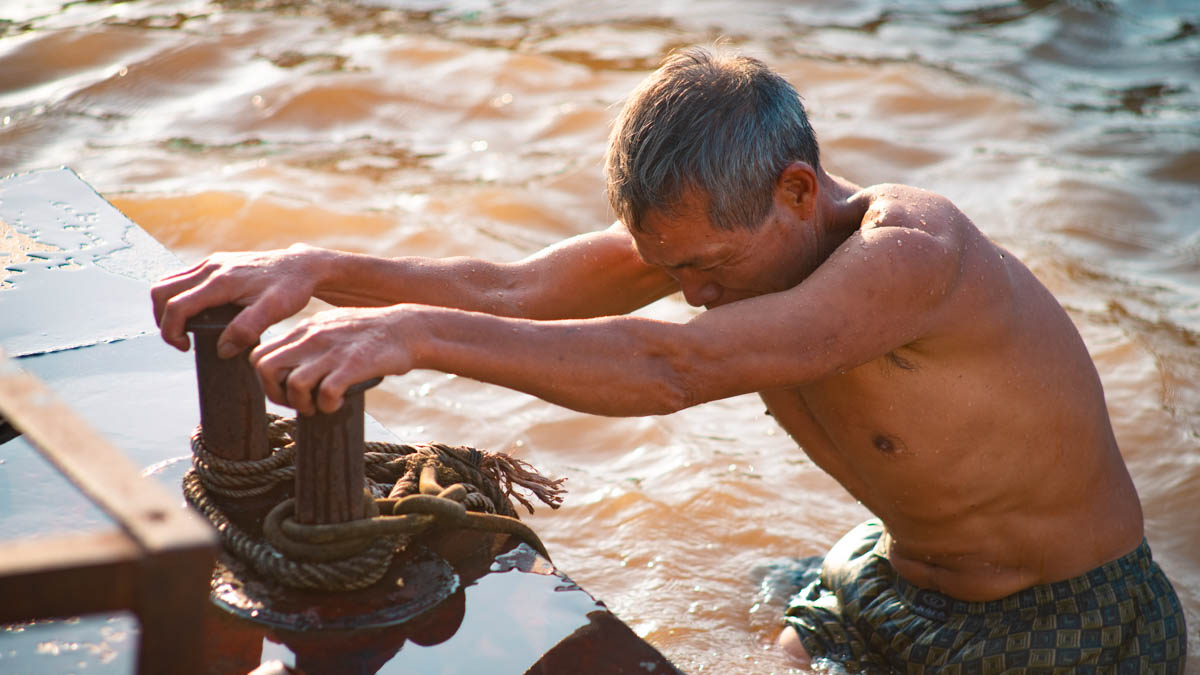
It is an hour before a late-summer sunset and two lithe Vietnamese youths reverse somersault off a jetty into the murky waters of Hanoi’s Red River. They seem to swim and frolic with the speed and comfort of fish, and minutes later a middle-aged man, an uncle perhaps, joins them for a splash, though he opts for a regular dive in lieu of a somersault.
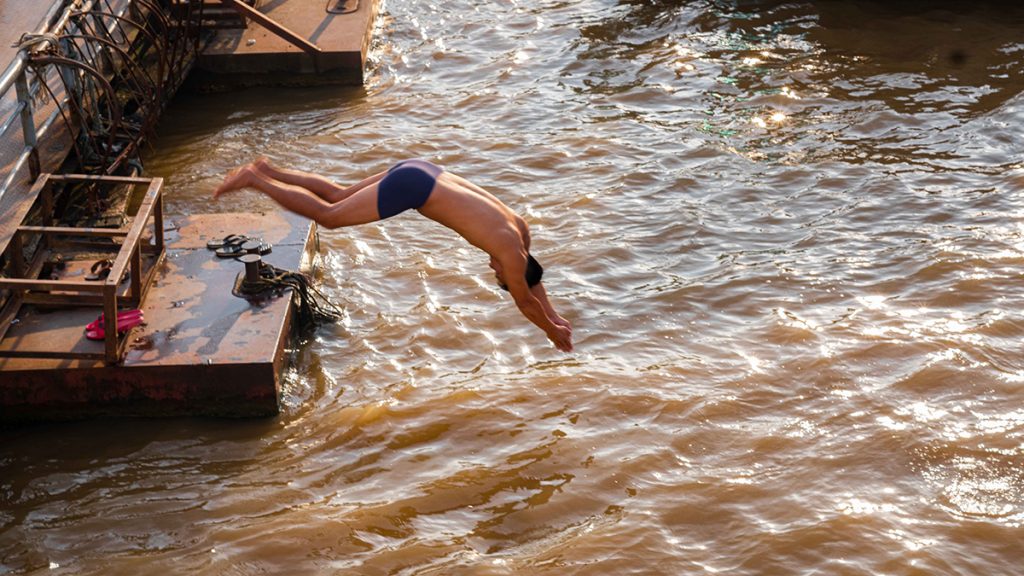
It’s hard to believe that this ramshackle floating village of 100 or so tin boats and dozens of smaller wooden fishing punts are just a couple of hundred meters from Tran Quan Khai, one of Hanoi’s busiest roads, and only about a 15-minute walk into the heart of the city center. Nestling on the riverbank at the end of a small side street, Chuong Duong Do, many Hanoians are not even aware of the small community’s existence.
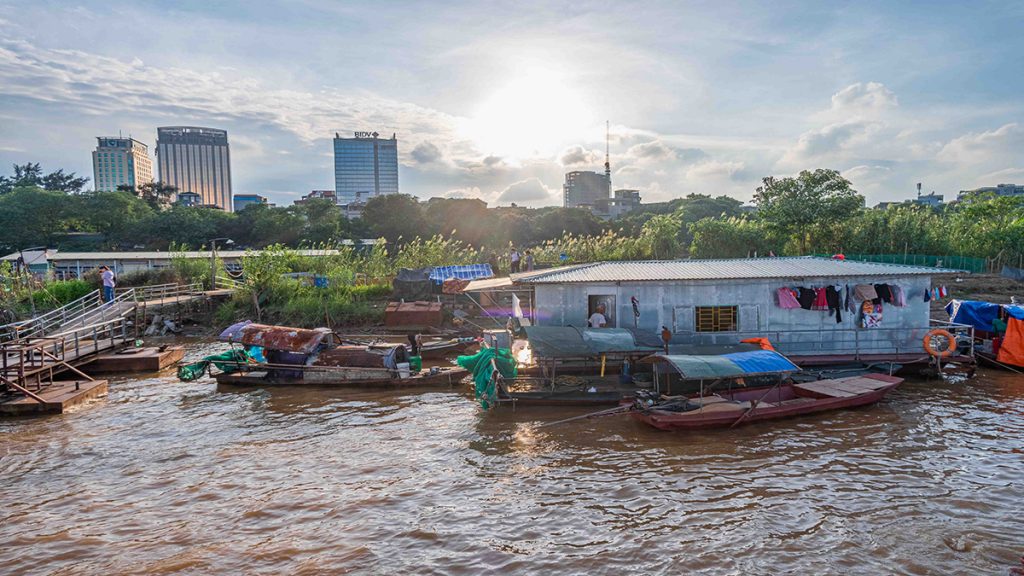
As we watch small clusters of fisherman return to their houseboats, we can also see skyscrapers, office buildings lit with neon, five-star hotels, as well as Chuong Duong Bridge thronged with tired passengers at rush hour, which connects Long Bien District with the Old Quarter. And it is all in plain sight and just a stone’s throw from the quiet rickety houseboats.
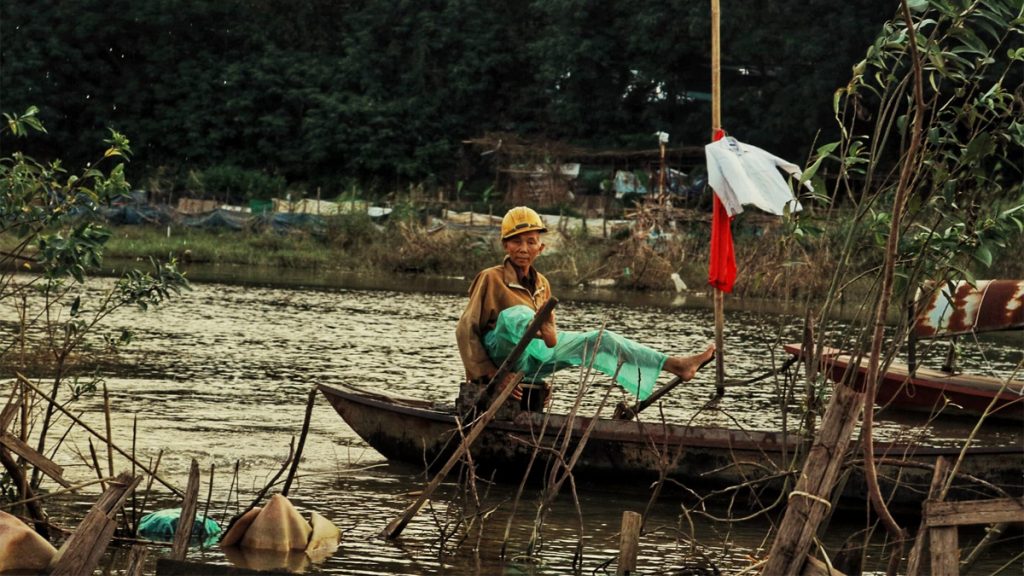
“How did you go?” one of the boatwomen yells at her husband as he rows back to the riverbank with his catch for the day.
“Not bad, about 2 kilos,” he shouts back, before setting to empty his nets.
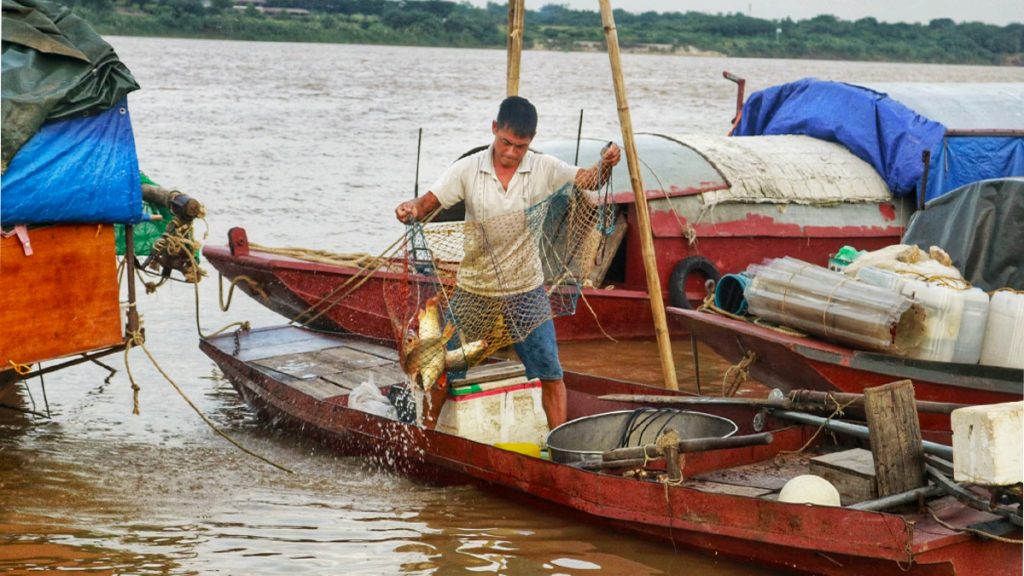
We are told 200 people live in the fishing village, though it feels much less. While the men are either making a ruckus jumping into the water to wash off the long day, or sitting in silence taking in the last sun-soaked hour of the evening, a gaggle of elderly women chat, stretch and eat grapes, while firmly giving Chào’s editor unsolicited life advice.
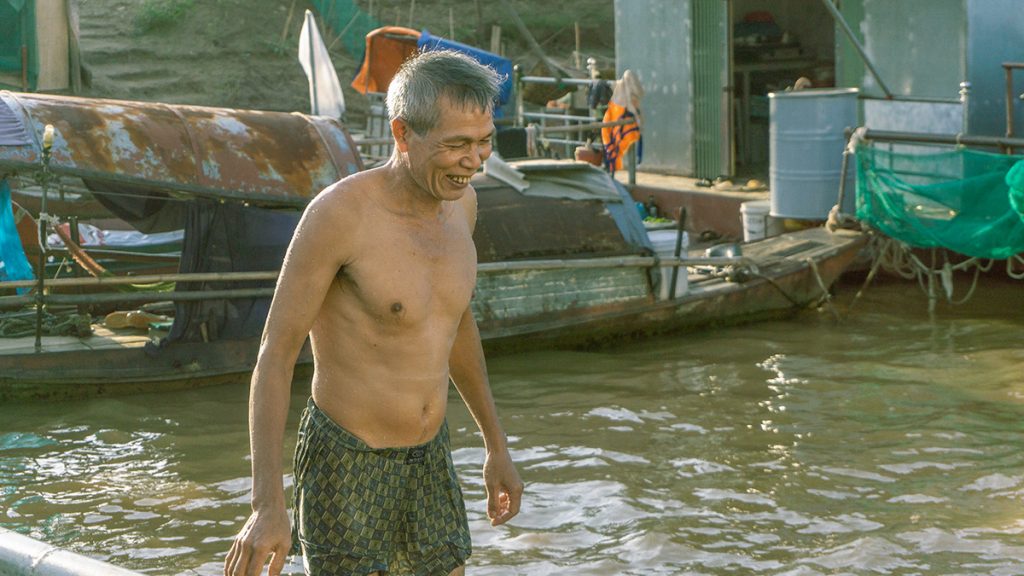
“It’s peaceful here isn’t it?” says a woman in her 80s who we call Ba. “Have you married? You should do it soon. You should marry a Vietnamese girl. She will look after you. How about this one?” Ba points at a Chào intern, and there is blushing all around.
Life without deadlines
The villagers here seem to set their own schedules depending on their mood. Some work from in the early morning until afternoon while others, the young men especially, take on the more taxing hours, from evening until sunrise. Such is the case for Tan, 26, who is getting ready for the ‘night shift,’ his work day just getting started. But before he sets off, he graciously invites Chào to come on to his houseboat on the river.

Afraid we are going to fall into the water, we cautiously clamber aboard this 8 square-meter space where he cooks, eats, sleeps and lives with his aunt and uncle. The space is limited, but though it is cramped, it seems to have everything he needs. There’s electricity, a fan, an old TV, clothes, a mini cooking station, and simple decorations on the wall.
“You can print all of the photos of me you like,” says one fisherman. “But don’t tell any of my stories. I know how you all like to twist words.”
Sipping on a cup of hot green tea that Tan pours for us, we ask what time he is setting off for the night. “Whenever I feel like it! It’s definitely not your typical 9-to-5 desk job,” he says with joyously comic understatement. “It depends on my family too.”
He tells us that he usually goes out to fish with his uncle and that the ideal scenario is two people onboard one tiny fishing boat. This way when one is busy the other can maneuver the boat or simply be ready for whatever obstacles might arise. “Each run can take up to 10 hours. It seems lengthy, but even so we only catch five batches, very little,” Tan says.
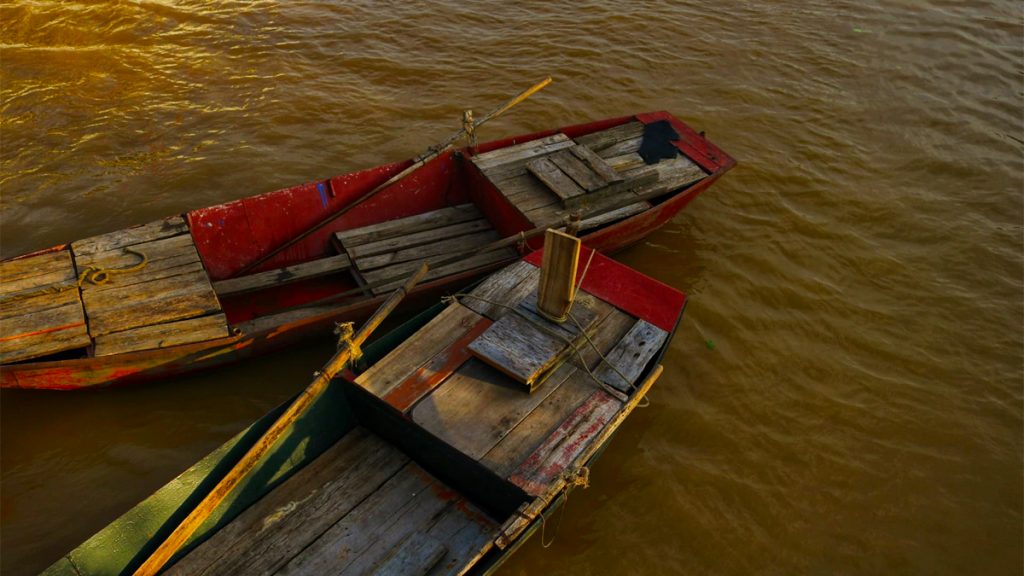
Neighbors on the water
The houseboat rocks slightly as we chat—most have barrels attached underneath for buoyancy and are anchored to the river floor to keep them from floating away, no matter if wind or storm. The exterior of the boats are patched up with colorful tarps, and seem more secure than they look. “Even when it rains, the roof doesn’t leak at all. If it did, how could we live!” Tan says.

A group of Tan’s friends from the neighboring boat shout across playfully chiding him. “Hey Tan, it looks like you’re gonna be on the news. You’re in big trouble.”
“Oh come on, when was the last time I had guests over to my place?” he replies.
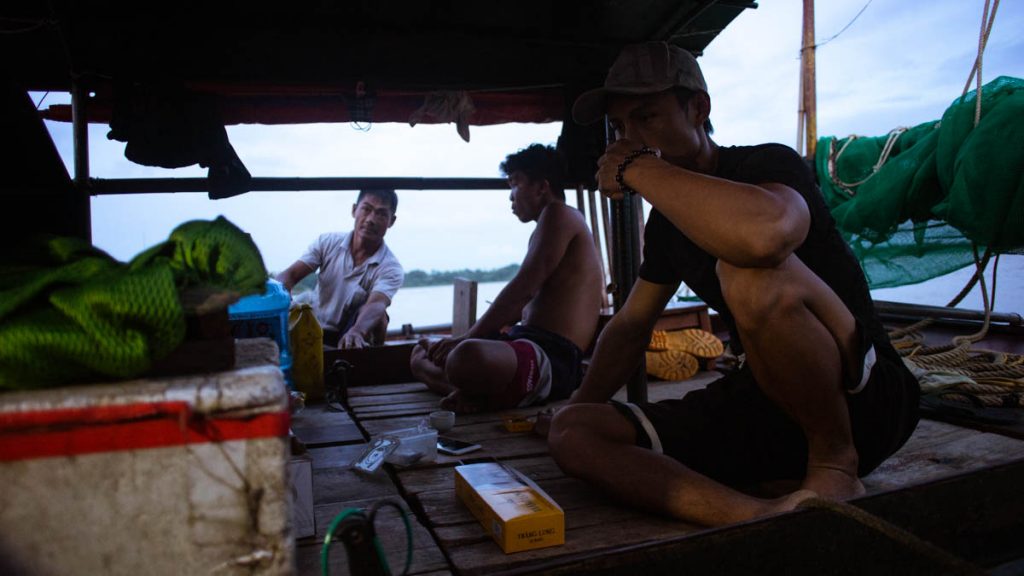
The villagers are all as friendly as could be, and invite us back to visit, “anytime you like,” but they are also slightly wary of questions from journalists. “You can print all of the photos of me you like,” says one fisherman. “But don’t tell any of my stories. I know how you all like to twist words.”

Unlike many of the residents, Tan did not grow up on the boats but lives most of the year here for work. His hometown is in Phu Ly, 60 km south of Hanoi, but he only visits once every few months, though he likes living on the boats among his neighbors, his workmates, his brothers. “Any time, as long as we’re all gathered together, I crack open a cold one with the guys,” he beams.

The smaller boats surround a much larger boat that looks a little out of place. It seems to be for tourist cruises. But with no tourists around, it appears to be rusting away, and some of the villagers picnic on its decks or use them for exercise, the muscular young men competing for who can do the most pull-ups.
Another world
Life is certainly different here, but in some ways regular too, and it is strange to see young children in uniforms returning to the boats from their schools on dry land, or small groups of women growing vegetables on the tiny bits of fertile soil available on the banks of the river.
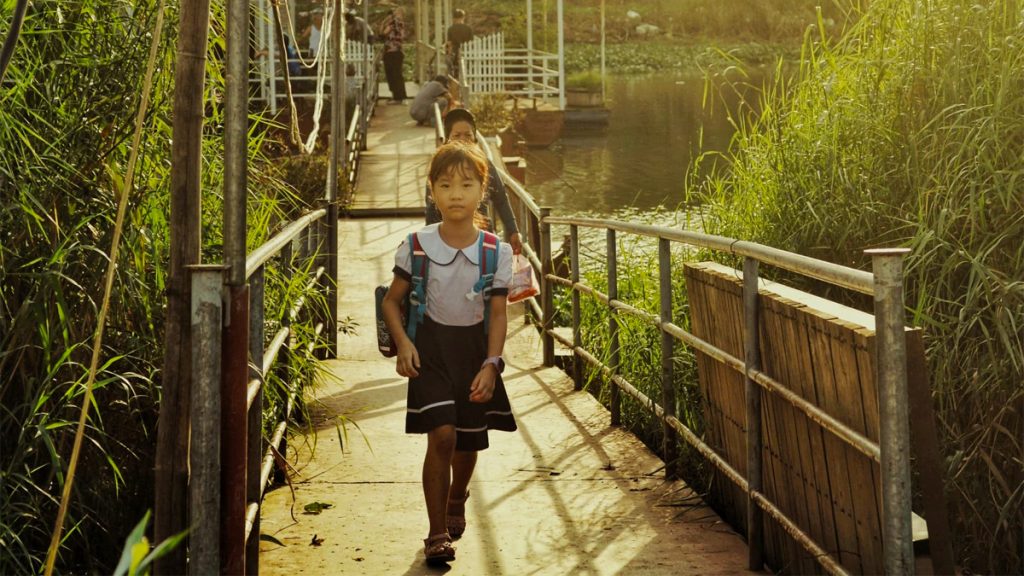
Despite being largely peaceful, the villagers quarrel like any other community, and Chào is a little surprised when two middle-aged boat ladies break out in energetic fisticuffs. One woman returned an item to the other but instead of handing it back, simply threw it onto the boat. It was not taken too kindly, and they scream and try to hit each other for a full 10 minutes. “Not a bad way to learn all the Vietnamese swear words,” a villager laughs.
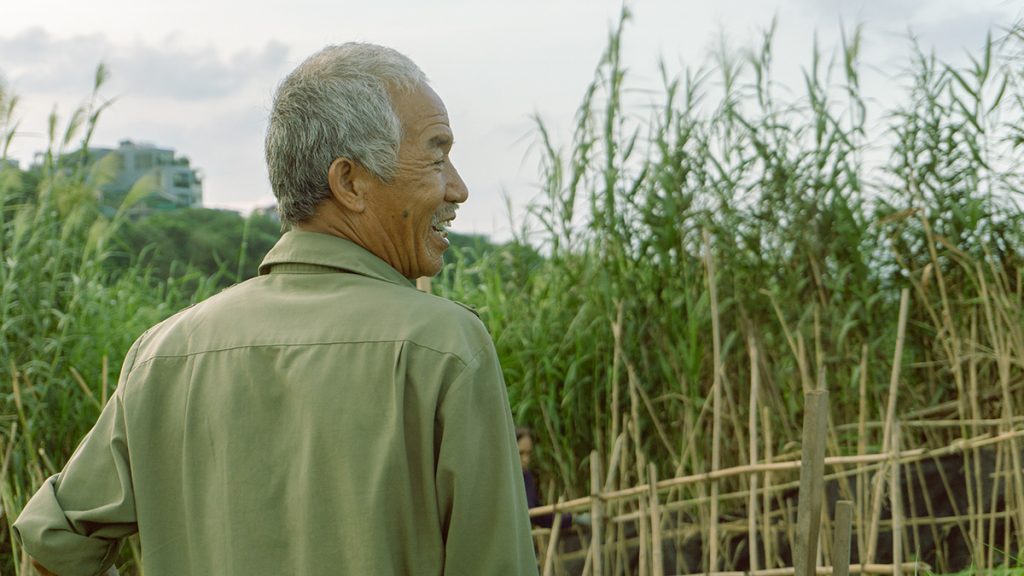
The sun has now set, darkness begun to creep in and the mosquitos, bloodthirsty, are upon us, which we take as our sign to leave. But we hope to return to this unlikely fishing village and its boat people, barely a kilometer from the center of the nation’s capital; though it is only a hop, skip and a jump from the main road, it feels we spent the afternoon in another world entirely.
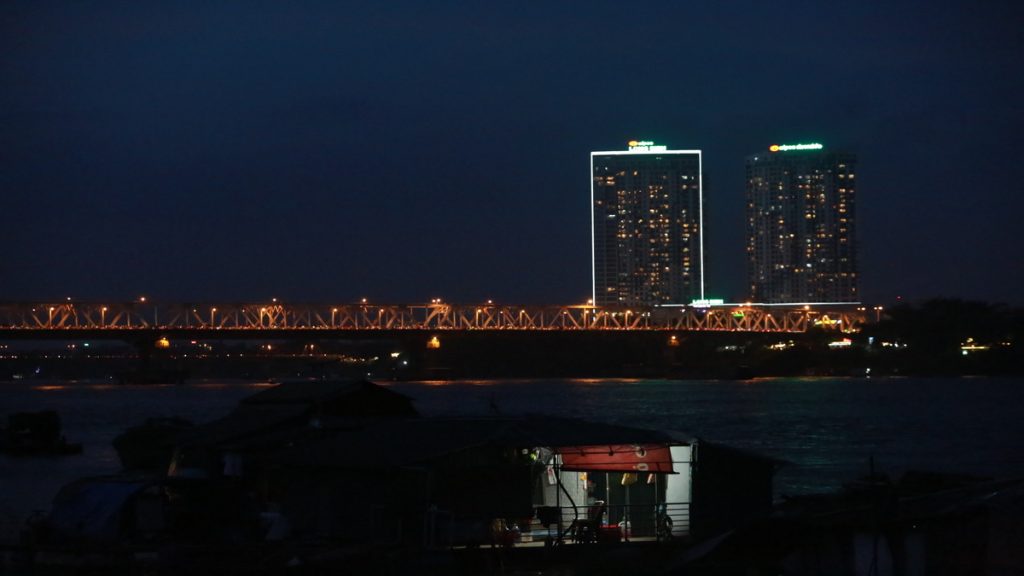
Main image by Hoang-Anh Bui.
Interview and additional reporting by Linh Nguyen.
1 Comment